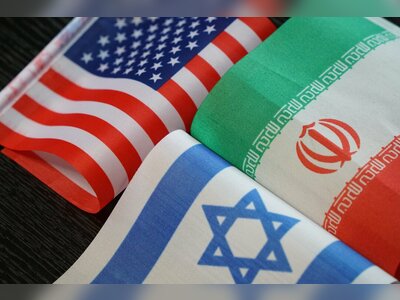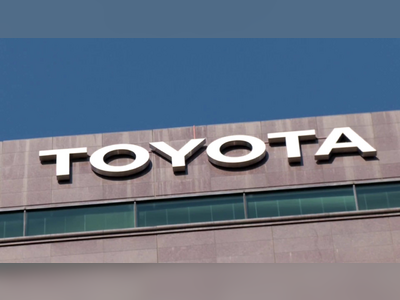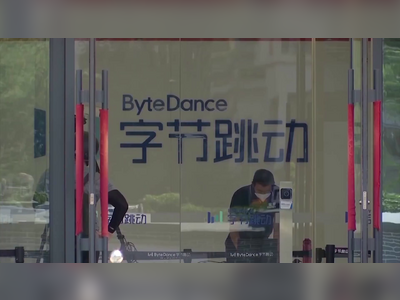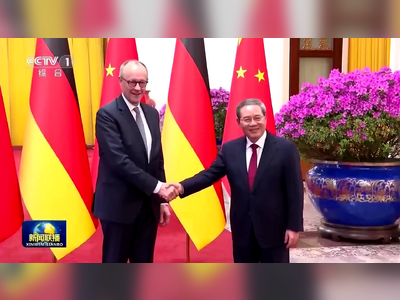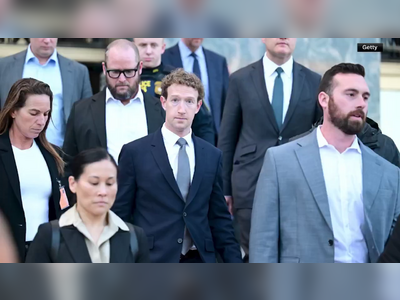
U.S. Supreme Court Supports TikTok Ban, Awaits New Administration's Decision
The Supreme Court's ruling leaves the future of TikTok and its 170 million U.S. users uncertain, with a deadline approaching for the app's possible shutdown.
WASHINGTON, Jan 17, 2025 — On Friday, the U.S. Supreme Court upheld a law that prohibits the social media platform TikTok in the United States unless its Chinese parent company, ByteDance, sells its stake.
The unanimous 9-0 ruling affirms the law's compatibility with national security concerns and could lead to the app's suspension of operations in the U.S. by Sunday.
The legislation, passed with bipartisan support and signed by President Joe Biden in 2024, highlights worries over TikTok's Chinese ownership and its potential impact on data security.
The app’s future now depends on the stance of President-elect Donald Trump, set to be inaugurated on Monday, who has indicated a desire to resolve the issue.
TikTok argued the law infringed on First Amendment rights.
However, the Supreme Court dismissed this argument, noting the platform’s risk of foreign control and its collection of sensitive user data warranted the government's action.
The ruling pointed out national security threats related to the possible misuse of the app for data gathering, espionage, or propaganda by the Chinese government.
ByteDance has made little headway in divesting its ownership before the January 19 deadline.
Meanwhile, President-elect Trump has promised to assess the situation.
'I will make my decision on TikTok soon,' Trump announced on social media.
TikTok CEO Shou Zi Chew is expected at Trump’s inauguration and remains hopeful for a resolution.
The Biden administration made clear it will not delay the law’s enforcement, leaving implementation to the incoming government.
Companies providing crucial services to TikTok, like Apple, Google, and Oracle, could face legal consequences under the law if they maintain business ties with the platform past the deadline.
The app, with over 170 million U.S. users, is a key part of social media culture, especially among younger audiences.
Its algorithm, which customizes content for individual users, makes it a significant force in the digital market.
Some users, reliant on the platform for income and interaction, have expressed major concerns about the potential ban.
Geopolitical tensions surrounding TikTok’s operations have been highlighted amid increasing U.S.-China tensions, including trade disputes and broader issues about China's role in technology and global narratives.
This decision comes as the U.S. continues to scrutinize Chinese tech firms and their potential national security threats.
Broadly, TikTok’s potential shutdown could indicate shifts in global digital policies and cross-border technology practices.
These developments might also influence how governments handle data security concerns and foreign control of crucial technology platforms.
The future of TikTok remains uncertain.
While a buyer for the platform could still emerge, only one significant contender, former Los Angeles Dodgers owner Frank McCourt, has shown interest, valuing the platform at $20 billion excluding its algorithm.
Other options include using the International Emergency Economic Powers Act to allow TikTok's continued U.S. operations under conditions that address national security concerns.
As the scenario evolves, TikTok’s status remains a key issue in both domestic policy and international relations, reflecting the intersection of technology, security, and governance in an increasingly interconnected world.
The unanimous 9-0 ruling affirms the law's compatibility with national security concerns and could lead to the app's suspension of operations in the U.S. by Sunday.
The legislation, passed with bipartisan support and signed by President Joe Biden in 2024, highlights worries over TikTok's Chinese ownership and its potential impact on data security.
The app’s future now depends on the stance of President-elect Donald Trump, set to be inaugurated on Monday, who has indicated a desire to resolve the issue.
TikTok argued the law infringed on First Amendment rights.
However, the Supreme Court dismissed this argument, noting the platform’s risk of foreign control and its collection of sensitive user data warranted the government's action.
The ruling pointed out national security threats related to the possible misuse of the app for data gathering, espionage, or propaganda by the Chinese government.
ByteDance has made little headway in divesting its ownership before the January 19 deadline.
Meanwhile, President-elect Trump has promised to assess the situation.
'I will make my decision on TikTok soon,' Trump announced on social media.
TikTok CEO Shou Zi Chew is expected at Trump’s inauguration and remains hopeful for a resolution.
The Biden administration made clear it will not delay the law’s enforcement, leaving implementation to the incoming government.
Companies providing crucial services to TikTok, like Apple, Google, and Oracle, could face legal consequences under the law if they maintain business ties with the platform past the deadline.
The app, with over 170 million U.S. users, is a key part of social media culture, especially among younger audiences.
Its algorithm, which customizes content for individual users, makes it a significant force in the digital market.
Some users, reliant on the platform for income and interaction, have expressed major concerns about the potential ban.
Geopolitical tensions surrounding TikTok’s operations have been highlighted amid increasing U.S.-China tensions, including trade disputes and broader issues about China's role in technology and global narratives.
This decision comes as the U.S. continues to scrutinize Chinese tech firms and their potential national security threats.
Broadly, TikTok’s potential shutdown could indicate shifts in global digital policies and cross-border technology practices.
These developments might also influence how governments handle data security concerns and foreign control of crucial technology platforms.
The future of TikTok remains uncertain.
While a buyer for the platform could still emerge, only one significant contender, former Los Angeles Dodgers owner Frank McCourt, has shown interest, valuing the platform at $20 billion excluding its algorithm.
Other options include using the International Emergency Economic Powers Act to allow TikTok's continued U.S. operations under conditions that address national security concerns.
As the scenario evolves, TikTok’s status remains a key issue in both domestic policy and international relations, reflecting the intersection of technology, security, and governance in an increasingly interconnected world.

